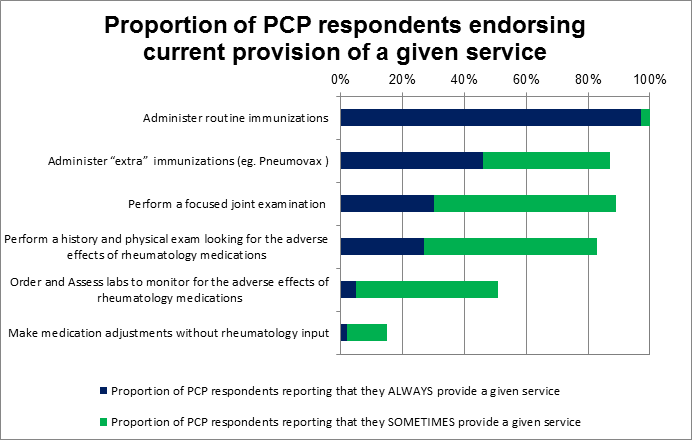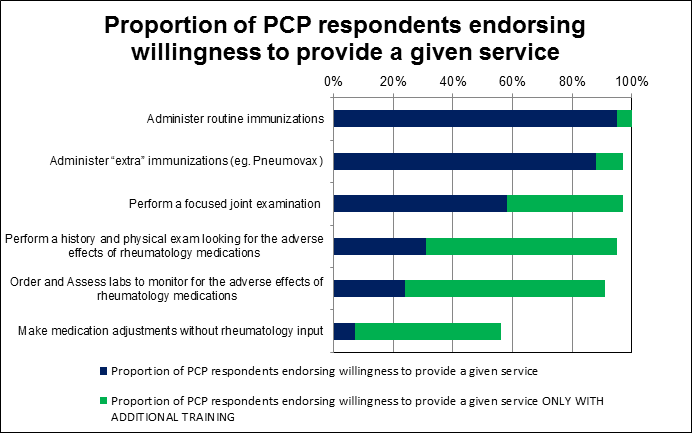Session Information
Session Type: Abstract Submissions (ACR)
Background/Purpose: Pediatric Rheumatology (PR) is among the smallest and least geographically accessible of the pediatric subspecialties. This problem may be addressed by utilizing the more extensive primary care provider (PCP) workforce, in combination with new technologies such as telemedicine. The objectives of this study were to 1) determine current PCP provision of medical services for children with JIA and 2) determine the willingness of these PCPs to provide services in the future.
Methods: Surveys were mailed to PCPs who had referred ≥2 patients to the University of Michigan Division of PR 2/2012-2/2014. Survey domains included the current provision of and willingness to provide medical services to children with JIA who are also followed by a pediatric rheumatologist. Services assessed included administration of immunizations, performance of a focused joint exam, monitoring for the adverse effects of rheumatology medications, and making medication adjustments. Statistical analyses included proportions and chi square tests.
Results: After 2 of 3 planned mailings, 154/230 PCPs had responded (response rate=67%). The majority of PCPs reported that they already provide many of the assessed services, especially those that are typically performed for all of their patients, such as administering immunizations. Fewer PCPs reported performing services traditionally done by specialists, such as monitoring for adverse effects of medications or making dose adjustments (Figure 1). With the exception of changing medications without PR input, over 90% of PCPs reported willingness to provide the assessed services in the future (Figure 2).
Conclusion: This study found that the majority of PCPs already provide many of the assessed medical services for children with JIA and that an even larger majority are willing to provide these services in the future. Co-management between PCPs and PRs could benefit children and their families by limiting travel expenses and time missed from work and school, while promoting communication and collaboration between PCPs and PRs. The current practices and willingness of PCPs to provide services to their patients with JIA should be used to guide future co-management activities for PCPs and PRs.
Disclosure:
A. Mroczek,
None;
G. Freed,
None;
M. Riebschleger,
None.
« Back to 2014 ACR/ARHP Annual Meeting
ACR Meeting Abstracts - https://acrabstracts.org/abstract/co-management-for-children-with-jia-a-survey-of-primary-care-providers-regarding-current-practices-and-willingness-to-provide-services/


